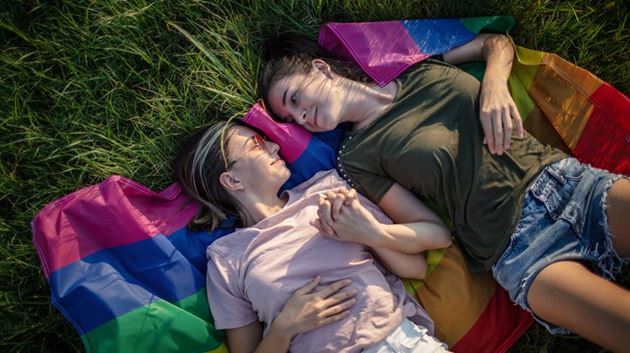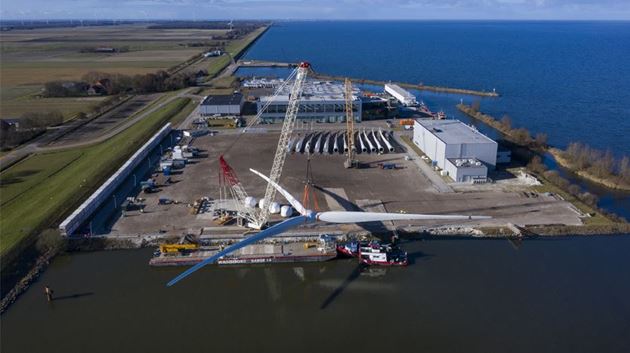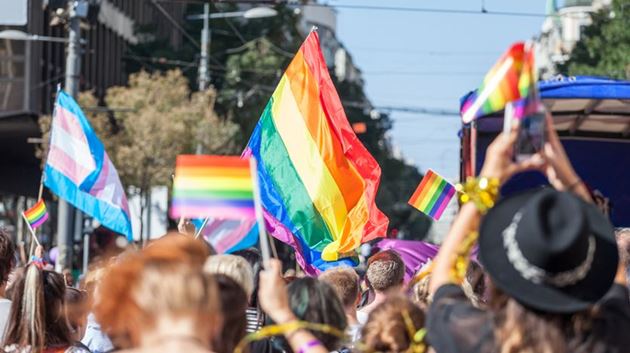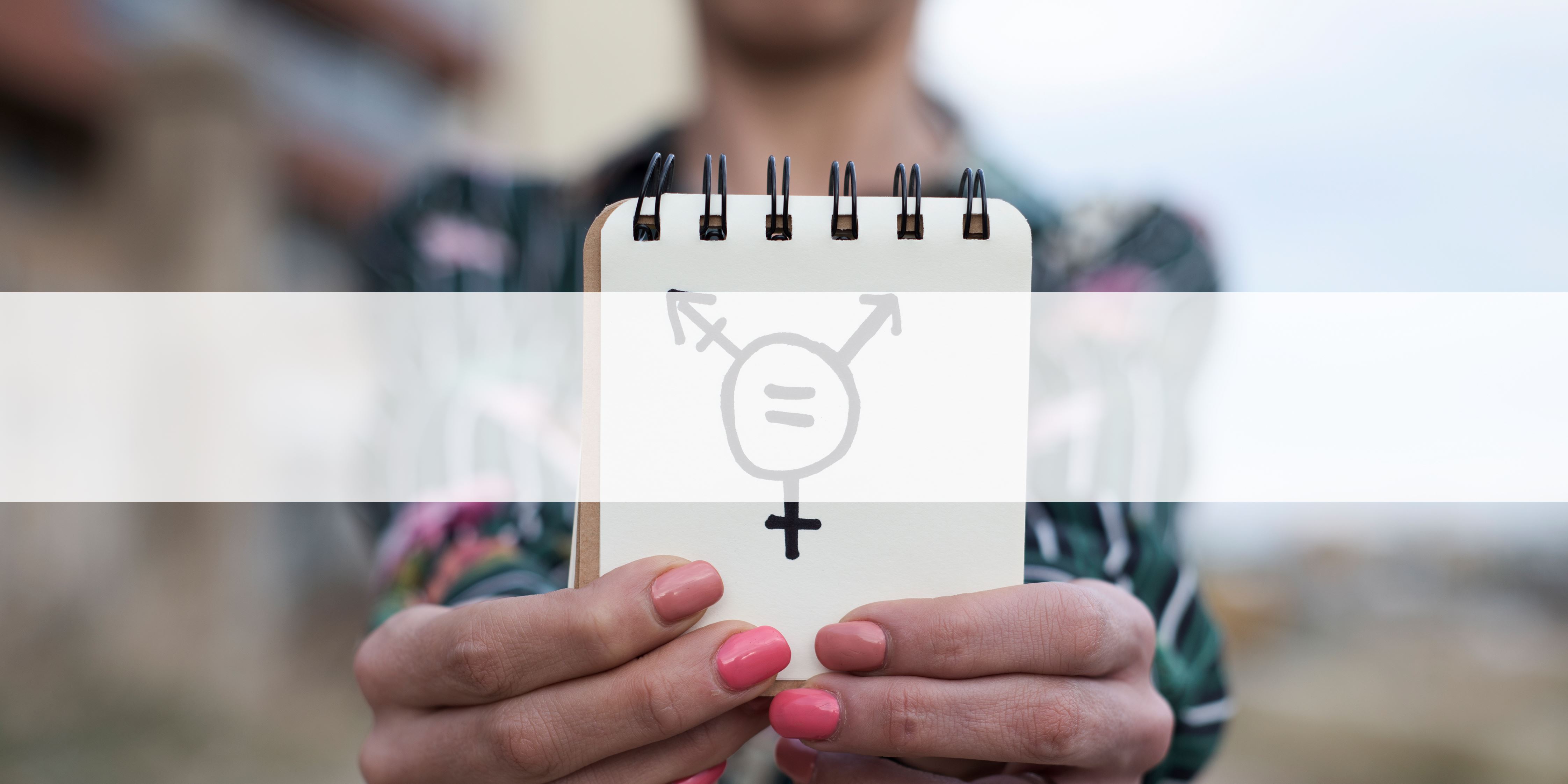
Voices of LGBTI: Islem Makouf and Aynsleigh Carmichael
#CelebratingDiversity
Florida / 24 June 2021
26,000 individuals make up who we are at Siemens Gamesa and it is for each and every one of our employees that we are committed to providing a diverse, inclusive and welcoming work environment. Creating equal opportunities for all is the only way that our employees can reach their full potential. We firmly believe that everyone deserves to feel that they can be themselves and feel valued and accepted for who they are.
June is Pride Month, a tribute to the participants of the 1970 Stonewall Uprising in New York City and a recognition of the impact that lesbian, gay, bisexual, transgender and intersex people have had on local, national and international history. By highlighting the personal journeys of some of our LGBTI colleagues, we aim not only to raise awareness about LGBTI issues, but also to give them a voice. We stand with them.
Today we introduce you to Islem Makouf (he/him), Senior Project Manager our office in Taipei, Taiwan and Aynsleigh Carmichael (she/her), a HR Business Partner for the United Kingdom and Ireland in the Offshore Business Unit living in Glasgow, Scotland - both members of Siemens Gamesa’s LGBTI community.
Today we introduce you to Islem Makouf (he/him), Senior Project Manager our office in Taipei, Taiwan and Aynsleigh Carmichael (she/her), a HR Business Partner for the United Kingdom and Ireland in the Offshore Business Unit living in Glasgow, Scotland - both members of Siemens Gamesa’s LGBTI community.
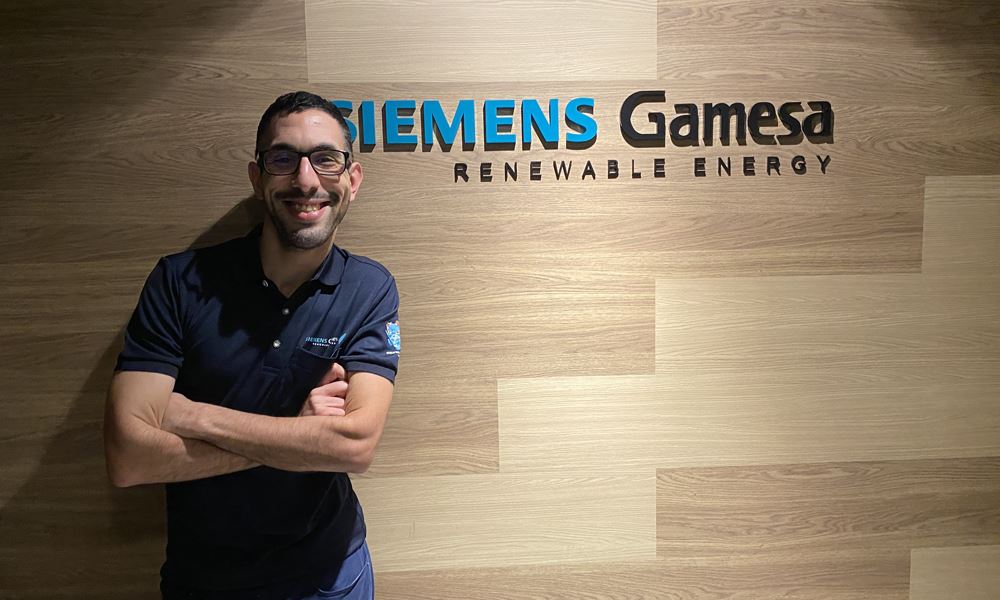
Islem Makouf (he/him)
“I think I first realized I was gay at a very young age but really accepted my sexual orientation quite later in life around 33 years old. That was when I had my first real same sex relationship and first breakup where I needed the support of my friends. So, I told them. At work, I invited my manager and a close colleague to a barbecue with friends one day. My way of coming out to them was introducing them there to my boyfriend. At the office itself, my colleagues who I work closely with all know my boyfriend.
I think that it’s pretty cool, because our team is quite young, and Taiwan is open when it comes to LGBTI topics – it was the first country to legalize same sex marriage in Asia. I have not perceived any changes in behavior towards me, but not everyone knows.
To be honest, being able to talk openly I must feel confident and the work place does not always allow that. I think the biggest challenge is still how people perceive sexual orientation or the concept of family. I often am asked if I have a girlfriend and to avoid making that person feel uncomfortable or yourself feel weird, I usually just say “no”. Technically, that is not a lie, since I do not have a girlfriend. If the question is phrased more neutrally, about a partner or similar, then you can assume that the person asking the question is unlikely to judge you based on your sexual orientation.
Pride for me means raising awareness and telling the world that we are here and our voice matters. It also shows people that are suffering, isolated or excluded that the community is here to support them. We just want to be happy, as simple as that sounds. It shouldn’t matter who we love. Pride in a professional setting is great also to raise awareness and to reduce stereotyping and will help with the adoption of more gender-neutral language. That way, people who do not fit the “normal” family standard, will feel included also."
To be honest, being able to talk openly I must feel confident and the work place does not always allow that. I think the biggest challenge is still how people perceive sexual orientation or the concept of family. I often am asked if I have a girlfriend and to avoid making that person feel uncomfortable or yourself feel weird, I usually just say “no”. Technically, that is not a lie, since I do not have a girlfriend. If the question is phrased more neutrally, about a partner or similar, then you can assume that the person asking the question is unlikely to judge you based on your sexual orientation.
Pride for me means raising awareness and telling the world that we are here and our voice matters. It also shows people that are suffering, isolated or excluded that the community is here to support them. We just want to be happy, as simple as that sounds. It shouldn’t matter who we love. Pride in a professional setting is great also to raise awareness and to reduce stereotyping and will help with the adoption of more gender-neutral language. That way, people who do not fit the “normal” family standard, will feel included also."
Aynsleigh Carmichael (she/her)
“I have always known that I am gay, and I told my family when I was around 16. I grew up in a fairly small coastal town in the West of Scotland and didn’t have any gay friends, or even know any gay people. So, I moved up to Glasgow for university/work and found myself in a fantastic big city where there were more people like me. I feel very fortunate, because everyone has always been so supportive when I have come out to them. Sadly though, that is not the case for everyone identifying as LGBTI.
Yes, I am out at work now, and proud to be. Although, this was not always the case. In my earlier years of entering the workforce, for some reason I wasn’t comfortable telling people I work with that my flat mate at the time was actually more than my flat mate. When people assumed, I had a boyfriend or a husband, I wouldn’t correct them. When Monday mornings came around and my colleagues asked what I got up to at the weekend, I would leave out parts of my weekend plans that might invite further questions on who I spent my time with or if they asked me something for which I didn’t have a pre-prepared answer. I wouldn’t elaborate on my personal life when everyone else around me was. It led to me feeling quite isolated at times and I ended up tying myself up in knots over how I should answer certain questions.
With the benefit of hindsight, I realize that I was lacking a positive role model in the workplace, or someone who I could relate to in my office environment. There were no LGBTI employee resource groups, no Pride or Women networks and no real tangible focus of diversity and inclusion – it just wasn’t something that was spoken about often, if at all. Fortunately, this has changed for the better.
Yes, I am out at work now, and proud to be. Although, this was not always the case. In my earlier years of entering the workforce, for some reason I wasn’t comfortable telling people I work with that my flat mate at the time was actually more than my flat mate. When people assumed, I had a boyfriend or a husband, I wouldn’t correct them. When Monday mornings came around and my colleagues asked what I got up to at the weekend, I would leave out parts of my weekend plans that might invite further questions on who I spent my time with or if they asked me something for which I didn’t have a pre-prepared answer. I wouldn’t elaborate on my personal life when everyone else around me was. It led to me feeling quite isolated at times and I ended up tying myself up in knots over how I should answer certain questions.
With the benefit of hindsight, I realize that I was lacking a positive role model in the workplace, or someone who I could relate to in my office environment. There were no LGBTI employee resource groups, no Pride or Women networks and no real tangible focus of diversity and inclusion – it just wasn’t something that was spoken about often, if at all. Fortunately, this has changed for the better.
The world of work is definitely more open-minded now and it takes people to be brave enough to step out and speak their story to change and improve a workplace culture. The biggest challenge being openly out in the workplace is that as an LGBTI person, I think, you are always coming out. It’s not something you do once and then that’s you, it’s done. It’s pretty much daily. When you meet someone new, you inevitably have to share your identity and a bit of your personal life in order to build relationships and rapports with people. That is why I believe an inclusive workplace to crucial. We must have a safe space for those who are not ready to come out yet, somewhere for those people to be curious, have access to other LGBTI colleagues who all have their own story to share.
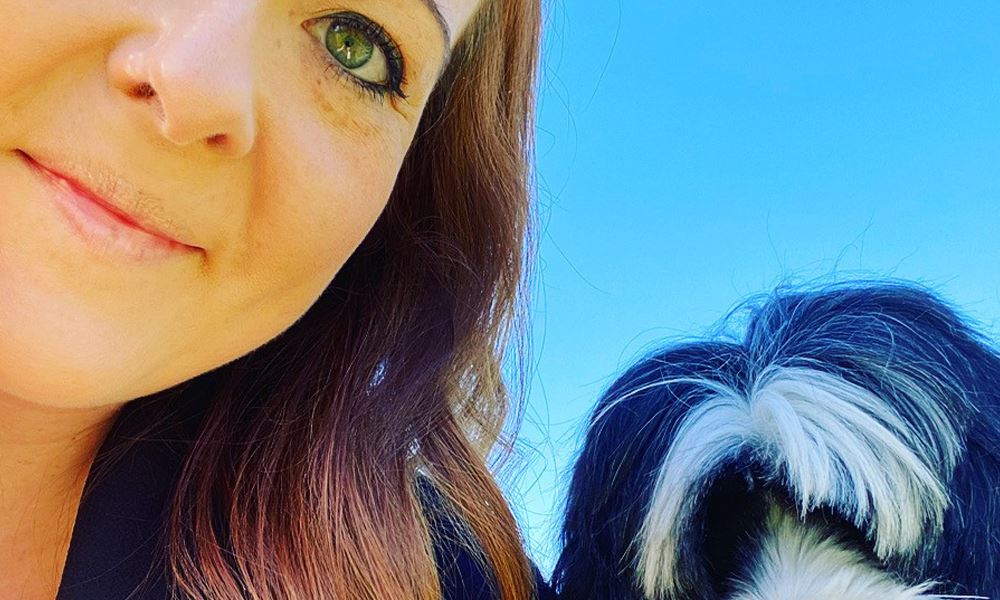
I would never want someone to feel how I did 10 years ago, and this is why I want to be visible to others.
As an employer, there is much you can do to be more diverse and inclusive. I believe it should be at the fore of everything we do. For example, diversity and inclusion as well as unconscious bias training should be mandated to every single employee, discrimination and equal opportunities policies should be robust and inclusive, organizations should support and take part in LGBTI events and initiatives to outwardly show they are serious about it, to name a few. A really important point is to remember to evolve with time. The struggle for LGBTI equity is far from over, policies and practices must keep adapting to the times as we all move forward.
Pride for me is a celebration. It also serves as awareness and as a reminder, so that we don’t ever forget the persecution that LGBTI people faced over the years. It makes me incredibly thankful for all those LGBTI individuals, communities and allies who fought before me to change the law, so that today I could be safe, happy and not have to suppress who I am in my professional and personal life. I will be eternally grateful for those brave and strong enough who stood up for their rights.”
As an employer, there is much you can do to be more diverse and inclusive. I believe it should be at the fore of everything we do. For example, diversity and inclusion as well as unconscious bias training should be mandated to every single employee, discrimination and equal opportunities policies should be robust and inclusive, organizations should support and take part in LGBTI events and initiatives to outwardly show they are serious about it, to name a few. A really important point is to remember to evolve with time. The struggle for LGBTI equity is far from over, policies and practices must keep adapting to the times as we all move forward.
Pride for me is a celebration. It also serves as awareness and as a reminder, so that we don’t ever forget the persecution that LGBTI people faced over the years. It makes me incredibly thankful for all those LGBTI individuals, communities and allies who fought before me to change the law, so that today I could be safe, happy and not have to suppress who I am in my professional and personal life. I will be eternally grateful for those brave and strong enough who stood up for their rights.”

